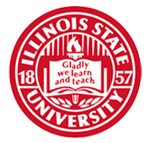Abstract
Language sample analysis (LSA) is valuable clinical tool and an important component of comprehensive language assessment. However, LSA is underutilized in real-world practice. SLPs have identified time constraints, insufficient training, and lack of confidence in LSA skills as barriers to regular LSA implementation. Communication science and disorders (CSD) programs have opportunities to provide LSA instruction to address these barriers and prepare students to reliably, feasibly, and confidently use LSA in clinical practice. This pilot study examined CSD students’ perspectives on LSA instruction using the Language ENvironment Analysis System (LENA). Undergraduate students (n = 38) completed a series of two electronic surveys prior to and following LSA instruction using LENA. Changes in students’ self-ratings of knowledge and skills in collecting and analyzing language samples, attitudes towards studying LSA and child language development, and critical thinking skills were assessed. Significantly higher student ratings were found for all items measuring language sampling knowledge and skills following digital LSA instruction compared to baseline. In addition, student ratings of enthusiasm for and confidence in studying LSA and child language development were also significantly higher. Students’ self-ratings of critical thinking skills did not increase significantly following instruction in digital LSA. Implications for LSA teaching and learning are discussed.
Recommended Citation
Flippin, M.
(2023).
Student Perspectives on Learning Language Sample Analysis Using LENA.
Teaching and Learning in Communication Sciences & Disorders, 7(1).
DOI: https://doi.org/10.30707/TLCSD7.1.1675490380.842994




